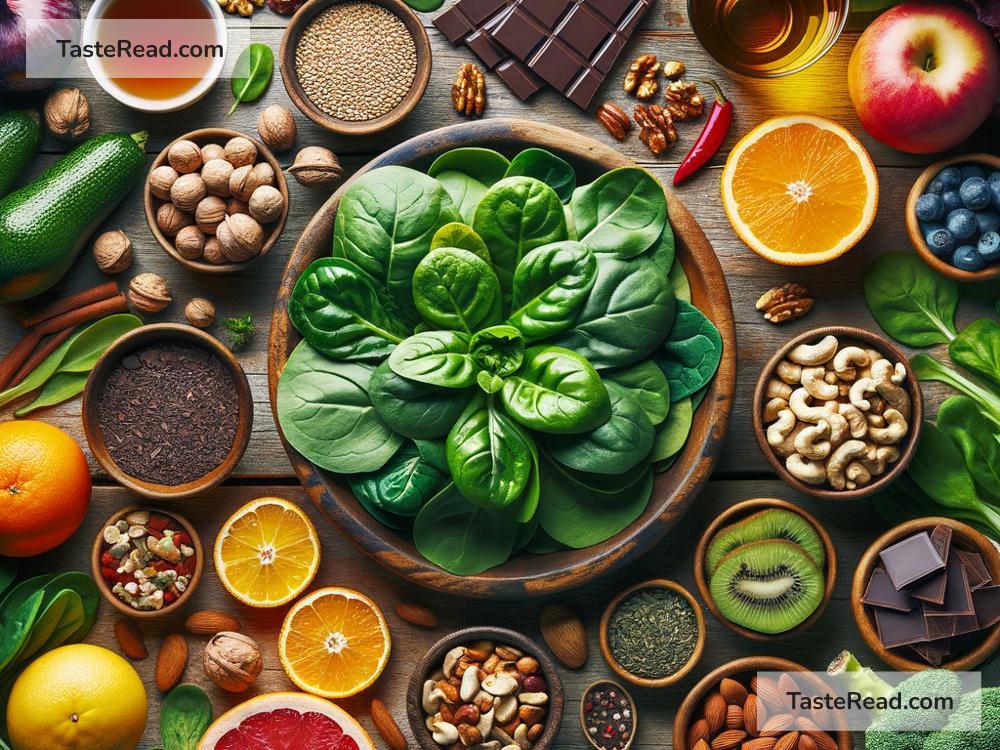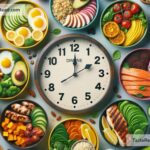Foods to Improve Menstrual Cycle Regularity
Having a regular menstrual cycle is an important part of overall health for people who menstruate. A regular cycle often means your hormones are balanced, your body is functioning well, and you’re less likely to experience severe period symptoms. However, many people face irregular cycles due to issues like stress, hormonal imbalances, poor diet, or underlying health conditions.
The good news is that improving your diet can play a big role in supporting a healthy menstrual cycle. Certain foods are packed with nutrients that help regulate hormones, reduce inflammation, and improve overall reproductive health. Let’s take a closer look at some of the best foods you can include in your diet to support a regular menstrual cycle.
1. Leafy Green Vegetables
Leafy greens like spinach, kale, and Swiss chard are rich in nutrients such as iron, magnesium, and calcium. Iron is especially important during your period because your body loses some during menstruation. Magnesium helps reduce PMS symptoms like cramps and mood swings, while calcium supports healthy hormone production.
If you often skip leafy greens, try adding them to smoothies, salads, or stir-fry dishes. Your body needs a consistent supply of these nutrients to function at its best.
2. Whole Grains
Whole grains like brown rice, quinoa, oats, and whole grain bread are excellent for stabilizing blood sugar levels. Balanced blood sugar helps your body regulate insulin, which is closely linked to reproductive hormones like estrogen and progesterone. If your insulin levels are out of balance, it can disrupt these hormones and lead to irregular cycles.
Replace refined grains like white bread and pasta with whole grain options to help your hormones stay steady.
3. Healthy Fats
Healthy fats are essential for hormone production. Foods like avocados, nuts (like almonds and walnuts), seeds (like flaxseeds and chia seeds), and olive oil can help your body create and balance hormones like estrogen and progesterone. Omega-3 fats, found in walnuts, chia seeds, and fatty fish like salmon, are particularly beneficial for reducing inflammation and easing period pain.
Avoid trans fats and overly processed fried foods, as these can disrupt hormone balance and contribute to irregular periods.
4. Fruits Rich in Antioxidants
Fruits like berries (blueberries, strawberries, raspberries), oranges, and kiwis are packed with antioxidants and vitamin C. These nutrients reduce oxidative stress in your body and support a healthy reproductive system. Vitamin C also helps your body absorb iron more effectively, which is crucial during menstruation.
Don’t forget to snack on fruits instead of sugary foods. They’ll satisfy your sweet tooth while helping your body stay on track.
5. Seeds for Hormone Balance
Certain seeds are known for their ability to help regulate hormones—a practice sometimes referred to as “seed cycling.” Flaxseeds and pumpkin seeds, for instance, contain lignans and healthy fats that support estrogen balance during the first half of your cycle. Meanwhile, sunflower and sesame seeds contain nutrients like zinc and vitamin E that support progesterone production during the second half.
You don’t need to follow a strict seed cycling plan to see benefits. Simply sprinkle seeds on your meals or blend them into smoothies.
6. Iron-Rich Foods
Iron deficiency can lead to irregular cycles, fatigue, and heavy bleeding during your period. Other than leafy greens, iron-rich foods include beans, lentils, tofu, eggs, and lean meats like chicken or turkey. If you follow a vegetarian diet, focus on getting both iron-rich foods and vitamin C (such as citrus fruits) to help maximize iron absorption.
Consult a doctor to check your iron levels if you experience heavy periods or unusual fatigue.
7. Herbal Remedies and Spices
Certain herbs and spices have been used for centuries to help with menstrual health. Ginger can help reduce inflammation and relieve menstrual cramps. Turmeric, with its active compound curcumin, also helps balance hormones and reduce pain.
You can enjoy these herbs in teas or add them to your meals for flavor and health benefits.
8. Probiotic Foods
Probiotics support gut health, and a healthy gut is important for absorbing nutrients and regulating hormones. Foods like yogurt, kefir, kimchi, sauerkraut, and other fermented foods are good sources of probiotics. These can help balance hormones and improve menstrual regularity.
Pair probiotic-rich foods with fiber-rich options (like whole grains and vegetables) for an even stronger gut health boost.
9. Water and Hydrating Options
While not technically a food, staying hydrated is incredibly important for menstrual health. Drinking enough water can reduce bloating, improve circulation, and support hormone balance. Herbal teas like chamomile and peppermint can also help, as they promote relaxation and ease menstrual discomfort.
Skipping sugary drinks like soda and opting for water or herbal teas is a simple way to help your cycle stay regular.
Closing Thoughts
Eating the right foods can make a big difference in improving menstrual cycle regularity. Focus on nutrient-rich options that support hormone balance, reduce inflammation, and strengthen your overall health. While changing your diet can help, remember that other factors—like managing stress, exercising regularly, and getting enough sleep—are also essential for menstrual health.
If your cycles remain irregular despite better eating habits, it’s a good idea to consult a healthcare professional. They can help identify potential underlying causes, such as polycystic ovary syndrome (PCOS), thyroid issues, or other conditions, and recommend appropriate treatments.
By nourishing your body with the right foods, you’ll feel healthier, more energized, and in sync with your natural cycles. A little adjustment in your diet can go a long way!


